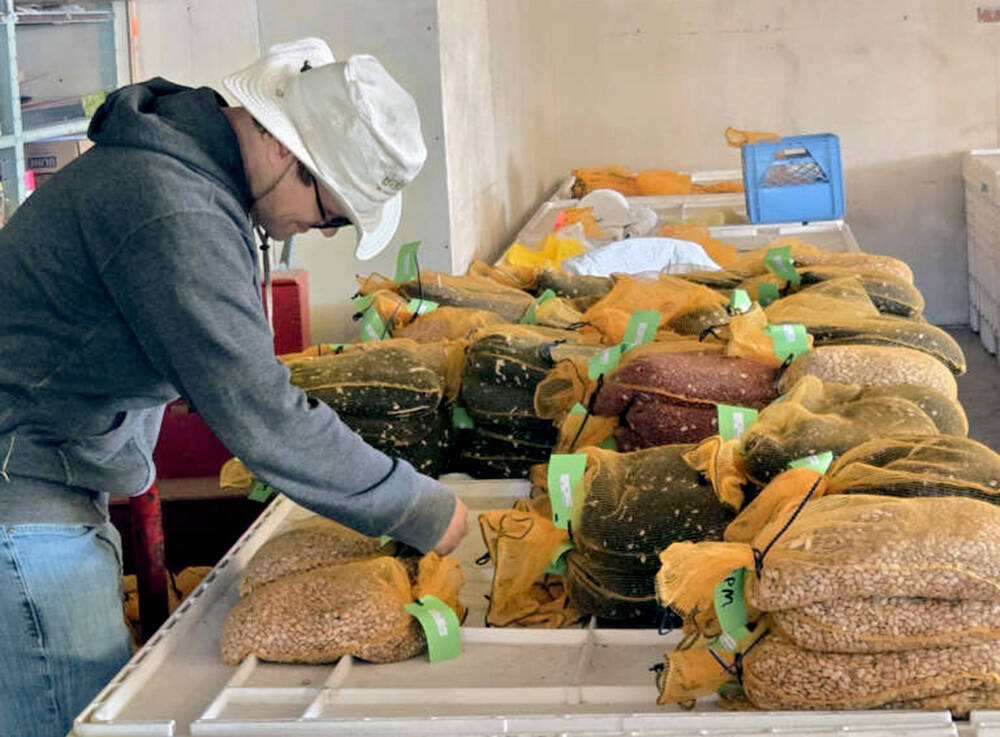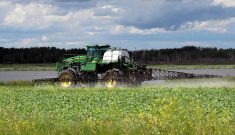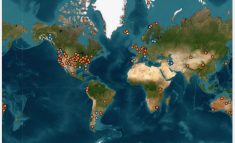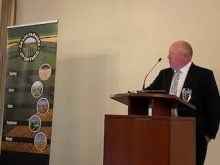A new report commissioned by Grain Farmers of Ontario (GFO) details long and short-term measures which can stabilize and insulate farmers in eastern Canada from fertilizer market turbulence.
Many recommendations for achieving longer term supply security would require high dollar investments, however, made more challenging in volatile political environments. In the short term, logistical challenges will continue hampering supplies and the realization of softening prices.
10 “Black Swan” events
Read Also

Bean research breeds community giving
University of Guelph dry bean researcher Dr. Mohsen Yoosefzadeh Najafabadi champions sustainability by donating surplus breeding program beans to support food security and community art initiatives.
The report – developed for GFO by American commodity trading firm StoneX – examines the global fertilizer market and how various factors have impacted Canadian farmers’ access to fertility inputs. It contextualizes the fertilizer cost and supply challenges facing farmers in eastern Canada by highlighting a series of ten “Black Swan” global events, beginning in June, 2020.
Six examples of such events include:
- June 2020 – The U.S Department of Commerce issued countervailing duties, which in effect blocked phosphate imports from Morocco and Russia. The indirect impact was increased consolidation of the global phosphate product and export into a single entity, influencing traffic through ownership, duty rates, or major producing countries not exporting.
- August 2020 – A devastating wind storm through the U.S. corn belt spurred substantially higher grain prices. This pushed cash prices to the Canadian farmer higher and higher, sparking more fertilizer demand.
- September 2021 – Conflicts between Russia and Europe resulted in Russia threatening to cut natural gas shipments to Europe resulting in Dutch TTF (natural gas) values spiking to price levels that have curtailed current European production by 40 per cent.
- October/November 2021 – As global fertilizer supplies became tighter and values started rising rapidly, nations around the world took steps to limit exports to ensure domestic availability. These rare actions resulted in a scarcity mindset in the global fertilizer market.
- February 2022 – After months of speculation, Russia invaded Ukraine. The initial disruption and loss of Russian fertilizer sent global prices skyrocketing further as nation’s scrambled to find replacements.
- August 2022 – As Russia cut natural gas supplies to Europe further, Dutch TTF (natural gas) values pushed even higher, leading to even more European production being taken offline.
Looking at each successive event makes plain how challenging conditions have been for much of the agriculture industry, says Brendan Byrne, GFO’s district one director and current chair.
“We can usually weather one or two things at a time. The sheer number of things against us the last two years…It all came to a head just as we were headed to the field to plant a crop for 2022,” he says.
“We’ve remained the exact same in our position. Remove the tariff and refund the tariff collected from farmers.”
Long and short-term recommendations
The report’s overarching conclusions detail how Canada is well-suited to drastically increase domestic production of much needed fertilizers, particularly nitrogen in the east, as well as the expenses such action will incur.
Novel production methods – as opposed to solely investing in large, traditionally-styled production facilities – offer a realistic antidote to current stresses in eastern Canada. However, such methods must be further proven before growers can rely on them. Successful new domestic production will also require reliable rail transportation and cost-effective delivery before they are considered viable alternatives to the current supply chain.
For Josh Linville, chief fertilizer market analyst with StoneX and one of three authors of the report, Canada’s historic reliance on international parties for a significant percentage of the country’s fertilizer needs has been unnecessary and risky.
“When you really consider it, it isn’t necessary. Canada is a very natural resource heavy country. Because of roadblocks and hurdles, it’s very difficult to build that plant,” says Linville, in reference to significant untapped capacity for both larger and smaller-scale production across the country.
“When I look at eastern Canada, it’s not necessarily one huge fertilizer plant. We’re seeing new tech for smaller plants. Maybe that’s the answer, having production more spread out, more competition.”
[RELATED] Eastern Canadian farm groups call for refund on fertilizer tariff payments
These are longer term recommendations, though. In the shorter term, Linville says logistics will continue putting pressure on farmers despite some stabilization in global fertilizer markets.
“2023 will be looked back upon as logistics. Fertilizer prices may be improving around the world but farmers have yet to see it…Much of it is about improving the rail system, but the thing we can affect in the coming months is the truck. For years trucking capacity has gone downhill. We did this to ourselves a bit. Governments have also made it harder to operate.”
Both Byrne and Linville suggest it might be possible to get more trucks on the road through changes in some government policies, as well as government programs around driver training or supporting those who want to purchase their own truck. In the long view, though, a broader change in government mindset may be required.
“We really see how things are when it’s cheaper to bring fertilizer from Russia then it is to send it by rail across Canada. We need to overcome these vulnerabilities,” says Byrne.
“There almost needs to be a fundamental change in government ideology. It’s one thing to say it takes a specific amount [of investment] but with an escalating carbon tax, and things like that, it’s not enticing to companies to invest. It’s not just about government funding. Maybe we need to consider our previous positions.”













